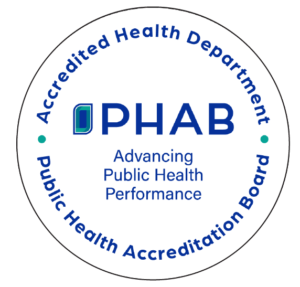Q: What is potassium iodide (KI)?
A: It is a non-prescription, stable form of iodine in a salt tablet. You do not need a prescription from your doctor to get it.
Q: Why is KI given?
A: Radioactive iodine may be released from a nuclear power plant during an emergency. If breathed or swallowed, it can damage your thyroid gland in your neck, which could cause loss of thyroid function, nodules or thyroid cancer. Children are at greater risk to thyroid damage than adults. Use of KI saturates the thyroid gland with non-radioactive iodine, blocking any radioactive iodine to protect your thyroid gland. KI does not prevent radioactive iodine from entering your body. KI only protects the thyroid from radioactive iodine. It does not protect other parts of the body from radioactive iodine and does not protect against other forms of radiation.
Q: Who will receive KI?
A: Residents, businesses and schools that are within 10 miles of a nuclear power plant (called the emergency planning zone) will be told when they can pick up free KI from their local health department, as they are at greatest risk of exposure to radioactive iodine.
Q: Who should not take KI?
A: Individuals who are allergic to iodine or who have rare disorders, such as dermatitis herpetiformis (a skin disorder often associated with celiac disease) or hypocomplementemic vasculitis (painful, pus-filled lesions that look like urticaria but lasting longer than 24 hours) should not take KI.
Q: When will I need to take KI?
A: Take KI immediately and only when a government official tells you to do so. During an emergency, be sure to watch your television and listen to your radio. Sirens will alert you to turn on your TV or radio. If you evacuate (leave the area) without being exposed to radioactive iodine, there is no need to take KI.
Q: How effective is KI?
A: KI may not give a person 100% protection against radioactive iodine. The sooner a person takes KI when told to do so, the better. How well KI blocks radioactive iodine also depends on how fast KI is absorbed in the blood and the total amount of radioactive iodine to which the person is exposed.
Q: How long will one dose protect me?
A: About 24 hours.
Q: Are there side effects?
A: Possible side effects include upset stomach, allergic reactions (possibly severe), rashes, and swelling of salivary glands. You are more likely to have side effects if you take more KI than you are told to take, take the drug for several days or already have a thyroid disease. Infants less than one month old who get more than one dose of KI are at particular risk for getting hypothyroidism (thyroid hormone levels are too low). If not treated, it could lead to brain damage. Infants who receive KI should have their thyroid hormone levels checked and watched by a doctor. Do not give more than one dose of KI to newborns.
Q: Is it safe for pregnant or nursing women?
A: Pregnant women should take KI to protect the growing fetus. Pregnant women should take only one dose of KI if they have been contaminated with radioactive iodine or will be contaminated with radioactive iodine. Talk to your doctor if you have questions or concerns.
Q: What is the dose?
| Population | KI Dose (mg) | # of ThyroSafe® tablets (65 mg) |
| Adults over 18 years | 130 mg | 2 |
| Women who are breastfeeding | 130 mg | 2 |
| Children between 3 years and 18 years | 65 mg | 1 |
| Children between 3 years and 18 years who are greater than or equal to 150 pounds | 130 mg | 2 |
| Infants and children between one month to 3 years | 32 mg | 1/2 |
| Newborns from birth to one month. This dose is for both nursing and non-nursing newborn infants. | 16 mg | 1/4 |
| ¡ Tablets may be crushed and mixed with many liquids for ease in swallowing. | ||
Stop taking KI if you are no longer in the radiation zone. The thyroid can only hold a single dose for up to 24 hours.
Q: How long can I keep KI tablets?
A: Until the expiration date identified on the package.
Q: Can I use KI in place of evacuation?
A: No.
Q: If I don’t have any KI pills, where can I get them in an emergency?
A: The effectiveness of KI depends on taking it as soon as a person has been exposed. If taken four hours after exposure, it is only 50% effective. Taking KI more than 24 hours after exposure does not give you any protection. It is best if you pick it up from your local health department or pharmacy when available. Some KI pills may be available at care centers, but it may be too late to take it by the time you get there. Care centers are listed in the FirstEnergy brochure Emergency Preparedness Information. This information is also listed in your phone book.
Q: Where should I store my KI?
A: Store KI at room temperature in the original foil packet. Keep dry and protect it from moisture. Keep out of the reach of children. The location of your KI pills should be one that is easily remembered and accessed in case of an emergency. Keep instructions and Fact Sheet with the pills. Expired KI can be taken to any one of the seven pharmaceutical disposal bins located at seven Lake County police departments or placed in the trash. See https://www.lcghd.org/ for the bin locations.
Q: Can I give KI to my pets?
A: Plan ahead and discuss this with your veterinarian.
Q: Where can I get more information on KI?
Lake County General Health District (440) 350-2543
Ashtabula County Health District (440) 576-6010
Geauga County General Health District (440) 279-1900

